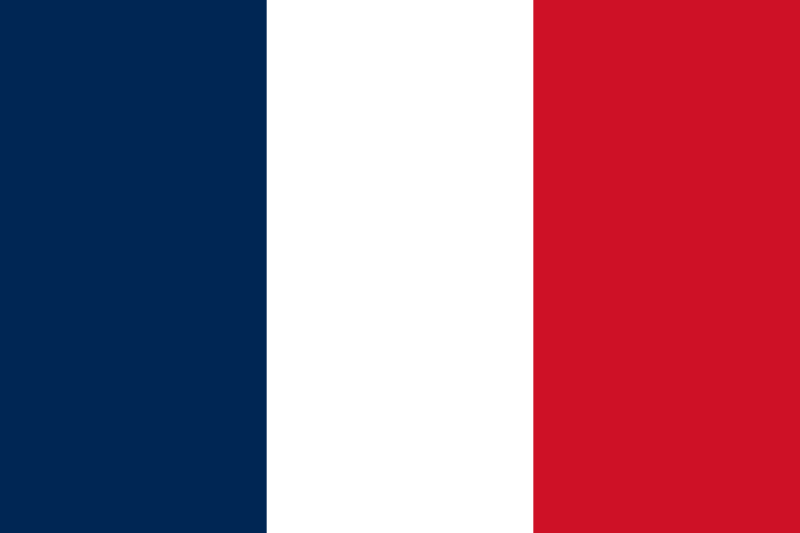FRANCE

Our graduate programs go beyond mainstream thought and practices, fostering intellectual inquiry and creative mastery.
WHY STUDY IN FRANCE?
France, with its rich history, cultural allure, and elegance, stands as an iconic European destination. Renowned for its art, fashion, and culinary excellence, the country captivates with romantic landscapes, vibrant cities, and a heritage steeped in cultural richness.
Opting to pursue education in France brings forth a myriad of compelling reasons:
Global Allure: France holds the distinction of being the most visited country globally, drawing millions to iconic landmarks like the Eiffel Tower, Louvre Museum, and Notre-Dame Cathedral.
Academic Prestige: Home to prestigious universities and institutions globally recognized for academic excellence and cutting-edge research, France attracts a diverse international student body.
Culinary Heritage: French cuisine, celebrated for its gourmet traditions, holds UNESCO World Heritage status, making it an integral part of the cultural experience for students.
English-Taught Programs: France’s higher education system is esteemed for offering a diverse array of programmes taught in English, ensuring accessibility and inclusivity for international students.
Emphasis on Academic Rigor: Renowned for their commitment to academic excellence, research opportunities, and quality education, French universities provide a robust foundation for future career success.
Cultural Immersion: Studying in France provides a unique opportunity for cultural immersion. Living amidst a blend of modernity and historical charm enhances global perspectives and language skills.
Strategic European Location: France’s central location in Europe facilitates easy travel access to neighbouring countries, fostering personal growth and global networking opportunities through exposure to diverse cultures and languages.
Vibrant Lifestyle and Dynamic Cities: France’s dynamic cities, vibrant lifestyle, and rich artistic heritage create an inspiring environment for students pursuing various fields.
Scope of studying in France:
Academic Excellence: Top-tier universities in France offer programs in engineering, business, humanities, and sciences, maintaining a global reputation for academic excellence.
Esteemed Academic Heritage: France boasts a rich academic legacy, especially in fields like philosophy, literature, mathematics, and the arts, providing a robust foundation for intellectual growth.
Research Opportunities: France leads in scientific research and innovation, offering extensive opportunities for students to engage in cutting-edge research across diverse disciplines.
Cultural Enrichment: Studying in France offers deep cultural immersion, allowing students to embrace different perspectives and traditions.
Language Learning: The chance to learn or enhance French language skills in a global environment contributes to linguistic proficiency.
Financial Support: France offers various scholarships and financial aid options, enhancing accessibility to education for international students.
Global Networking: Students in France become part of an international student community, connecting with individuals from diverse backgrounds and cultures.
Career Advantages: A degree from a French institution enjoys global recognition, contributing to enhanced career prospects internationally.
FAMOUS COURSES
France is renowned for its world-class universities, which offer a diverse range of courses across various fields. Among the top courses offered by these universities are:
- Engineering
- Business and management
- Computer science
- Medicine and health sciences
- Arts and humanities
- Law
- Environmental science
- Social sciences
- Mathematics and statistics
- Architecture
These courses are offered by esteemed French universities, including Sorbonne University, École Polytechnique, and Université Paris-Saclay. Each university possesses distinct strengths and specialisations, underscoring the importance of comprehensive research to choose the one aligning with your academic and career goals.
UNIVERSITIES
- Sorbonne University
- École Normale Supérieure (ENS Paris)
- Paris Sciences et Lettres University (PSL)
- École Polytechnique
- HEC Paris
- University of Paris-Saclay
- Sciences Po
- University of Aix-Marseille
- University of Strasbourg
- University of Bordeaux
- University of Lille
- Toulouse Business School
- INSA Lyon (National Institute of Applied Sciences)
- SKEMA Business School
- University of Rennes 1
- Grenoble Ecole de Management
- List IteUniversity of Montpellierm
- University of Nice Sophia Antipolis
INTAKES
| Intakes | APPLICATION DEADLINE |
| Fall (September) | JAN – MAR |
| Spring (February) | SEP – NOV |
| Summer | APR – MAY |
For undergraduate programs, the main intake is typically in September, with application deadlines in the early summer. Graduate program deadlines may vary, necessitating thorough research and early applications due to competitiveness.
COURSES, TUITION FEE, DURATION & ENTRY REQUIREMENTS
| Course | Tuition Fee (EUR/YEAR) | Duration | Entry Requirements |
| Undergraduate / Bachelors | 2,500 – 10,000 | 3-4 years | International students must have completed their secondary education and obtained a high school diploma or equivalent qualification that is recognized in France. Language Proficiency Test English/France(IELTS/TOEFL) Standardized Test (SAT/ACT) Personal Statement and LOR |
| UG Diploma | 3,000 – 15,000 | 1-2 years | High school diploma or equivalent with good grades, proof of English or French proficiency Polytechnic Diploma |
| Polytechnic Diploma | 2,000 -10,000 | 1- 3 years | High school diploma or equivalent with good grades, proof of English or French proficiency |
| International Baccalaureate (IB) | 5,000 – 12,000 | 2 years (Final two years of school) | IB Diploma or equivalent with good grades, proof of English or French proficiency |
| Graduate / Masters / Post Graduate | 5,000 – 30,000 | 1-2 years | Bachelor’s degree/equivalent qualification recognized in France with good grades, Language Proficiency Test France/English(IELTS/TOEFL) Standardized Test (GRE/GMAT) Personal Statement and LOR Work Experience/Interview |
| PG / Masters/ Graduate Diploma | 3,000 – 25,000 | 1 – 2 year | Bachelor’s degree/equivalent qualification recognized in France with good grades, Language Proficiency Test France/English(IELTS/TOEFL) Standardized Test (GRE/GMAT) Personal Statement and LOR Work Experience/Interview |
| PhD | Doctoral programs are generally free of charge for both domestic and international students. | 3-4 years | Master’s degree with good grades, research proposal, proof of English or French proficiency. |
France stands as a favoured choice for global students pursuing high-quality education. The tuition fees for international students in France fluctuate based on the academic level, the institution, and the specific program of study. Notably, these fees are notably more affordable than those imposed by universities in other sought-after study locations like the United States and the United Kingdom.
Moreover, French universities extend various scholarships and financial assistance opportunities to international students, easing the financial burden of tuition expenses.
SCHOLARSHIPS
France provides various scholarships, such as:
1. Eiffel Scholarship Program: This scholarship is awarded to outstanding international students who wish to pursue a master’s or doctoral degree in France. It covers tuition fees, living expenses, and travel costs.
2. Charpak Scholarship: This scholarship is awarded to Indian students who wish to study in France at the master’s or doctoral level. It covers tuition fees, living expenses, and health insurance.
3. Erasmus+ Scholarship: This scholarship is available to students from European Union countries who wish to study in France. It covers tuition fees, travel costs, and living expenses.
4. A Midex Scholarship: This scholarship is awarded to international students who wish to pursue a master’s or doctoral degree in science, technology, or health in France. It covers tuition fees and living expenses.
5. French Government Scholarship: This scholarship is awarded to international students who wish to pursue a master’s or doctoral degree in France. It covers tuition fees, living expenses, and health insurance.
It’s crucial to emphasize that every scholarship comes with its own unique eligibility criteria and application procedures. Students are encouraged to conduct thorough research and submit their scholarship applications well ahead of their planned start date to enhance their likelihood of success.
Visa Procedures
The visa application process in France varies depending on the duration and purpose of your intended stay. If your plan involves studying in France for less than 90 days, a Schengen visa may suffice, granting you access to travel within the Schengen Area, encompassing most of Europe.
To obtain a Schengen visa, you must submit an application to the French embassy or consulate in your home country. Requirements typically include a valid passport, evidence of travel arrangements, and proof of financial capacity to sustain yourself during your stay.
For those intending to study in France for more than 90 days, a long-stay visa, commonly referred to as a student visa, is necessary. This visa permits you to reside in France for the entire duration of your academic program.
To apply for a student visa, you’ll need to submit an application to the French embassy or consulate in your home country, accompanied by a valid passport, proof of enrollment in a French educational institution, evidence of financial means to support yourself, and a medical certificate.
It’s crucial to keep in mind that the visa application process can be time-consuming, taking several weeks or even months. Therefore, it is advisable to initiate the process well in advance of your planned departure date. Additionally, carefully reviewing the specific requirements for your visa type and ensuring you have all necessary documents and information before submitting your application is essential.
WORK PERMIT
For international students seeking employment in France during their studies, obtaining a work permit is a requisite. The specific type of work permit necessary hinges on the student’s nationality, the duration of their stay in France, and the nature of the employment they aim to undertake.
EU or EEA students enjoy the privilege of working in France without the need for a work permit, facing no restrictions on employment.
Non-EU/EEA students, however, are obligated to secure a work permit to engage in employment in France. They are permitted to work part-time for a maximum of 964 hours annually, equivalent to 60% of the legal working hours in France. To acquire a work permit, students must possess a valid student visa and be enrolled in a recognized program of study in France.
There are two categories of work permits accessible to international students in France:
Temporary work permit: Valid for up to one year, this permit enables students to work part-time while pursuing their studies.
Post-graduate work permit: Reserved for students who have completed their studies in France and aspire to work in the country, this permit is valid for up to two years, allowing full-time employment across various industries.
It is imperative to acknowledge that the process of obtaining a work permit in France can be intricate and time-consuming. Students are strongly advised to conduct thorough research on the requirements and application procedures well in advance of their planned start date to ensure compliance with all necessary criteria.
TOP COMPANIES










AVERAGE SALARY
The average salary in France is subject to variation based on industry, job category, and location. According to data sourced from the National Institute of Statistics and Economic Studies (INSEE), the average net monthly salary in France for 2021 was €2,327, equivalent to around €27,924 annually.
However, it’s essential to recognize that salary levels in France exhibit significant diversity, influenced by regional disparities and industry-specific factors. Notably, wages tend to be higher in major cities like Paris, and certain sectors such as finance, engineering, and technology typically offer more lucrative compensation.
Furthermore, the cost of living in France, particularly in major urban centers like Paris, can be relatively high. Despite this, France provides various advantages, including excellent healthcare, a high quality of life, and a robust social safety net.
In summary, although the average salary in France may not surpass some other nations, the country’s appeal extends beyond monetary considerations. The combination of diverse benefits makes France an attractive destination for both local and international workers.
How to Apply?
- You Apply
Tell us a little about yourself and we’ll help with the rest. Our convenient online application tool only takes 10 minutes to complete.
- We Connect
After you submit your application, an admissions representative will contact you and will help you to complete the process.
- You Get Ready
Once you’ve completed your application and connected with an admissions representative, you’re ready to create your schedule.
